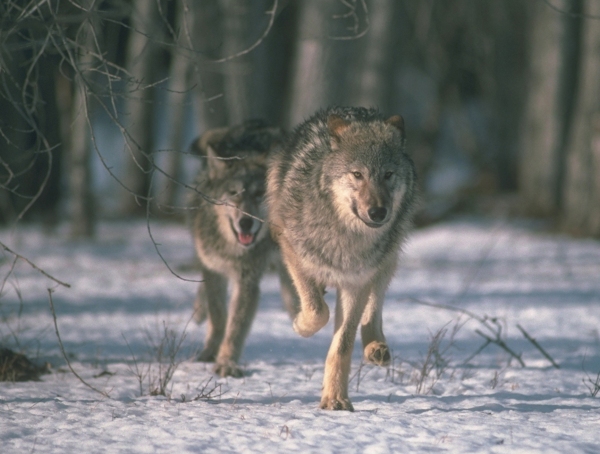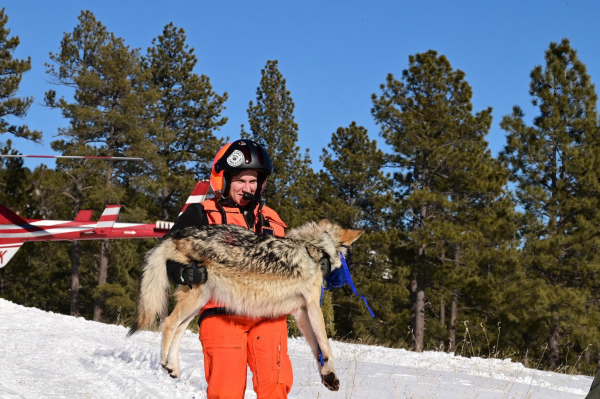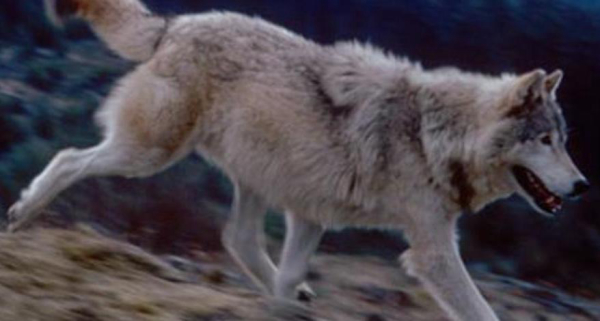Court Vacates Western Great Lakes Wolf Delisting Rule — Puts WGL Wolves Back on the Endangered Species List
 A D.C. federal district court judge has returned the wolves of the Western Great Lakes (WGL) to the endangered species list. This was the fourth time that a delisting of the WGL wolves has been overturned in court. In a 111 page opinion, the judge ruled that the U.S. Fish and Wildlife Service (FWS) violated the Endangered Species Act by illegally creating the Western Great Lakes Distinct Population Segment of wolves. The court decided that the FWS lacks authority to delist anything less than what they originally listed. Since the FWS had originally listed gray wolves throughout the lower 48 states, the court held that the FWS lacked the authority to delist any population segment smaller than the species as a whole. The court rejected the argument that the wolves of Minnesota, which the FWS had designated as “threatened” in 1978, qualified as a DPS that the FWS could later delist.
A D.C. federal district court judge has returned the wolves of the Western Great Lakes (WGL) to the endangered species list. This was the fourth time that a delisting of the WGL wolves has been overturned in court. In a 111 page opinion, the judge ruled that the U.S. Fish and Wildlife Service (FWS) violated the Endangered Species Act by illegally creating the Western Great Lakes Distinct Population Segment of wolves. The court decided that the FWS lacks authority to delist anything less than what they originally listed. Since the FWS had originally listed gray wolves throughout the lower 48 states, the court held that the FWS lacked the authority to delist any population segment smaller than the species as a whole. The court rejected the argument that the wolves of Minnesota, which the FWS had designated as “threatened” in 1978, qualified as a DPS that the FWS could later delist.
The court also had problems with many other aspects of the delisting rule. The court found the FWS’s explanation of certain issues lacking, such as the significance of the wolves’ absence from areas of their historic range, the absence of regulatory protections of wolves in many of the states – those other than Michigan, Wisconsin and Minnesota — that had been included in the DPS, and the existence of risks to the wolves from multiple sources of mortality.
The court rejected arguments submitted by the FWS, the states of Michigan, Wisconsin and Minnesota as well as SCI’s intervenor group (also including the U.S. Sportsmen’s Alliance Foundation, the National Rifle Association, the Wisconsin Bear Hunters Association, the Michigan United Conservation Clubs, the Wisconsin Bowhunters Association, the Upper Peninsula Bear Houndsmen Association, the Michigan Hunting Dog Federation, and the Rocky Mountain Elk Foundation) that recommended that the judge not invalidate the delisting rule and instead simply remand the rule to the FWS for further correction and explanation. The judge was unconvinced that the relisting would cause disruption in the management of the species. The judge chose instead to vacate the delisting rule and restored the wolves to federal protection.
SCI’s Litigation Team is studying this ruling and in the next few days will be analyzing its impact, not only on the future of WGL wolves, but also on other species potentially poised to be delisted. SCI will also be consulting with attorneys for the FWS, states and other defendant-intervenors to discuss a potential appeal of this ruling.





